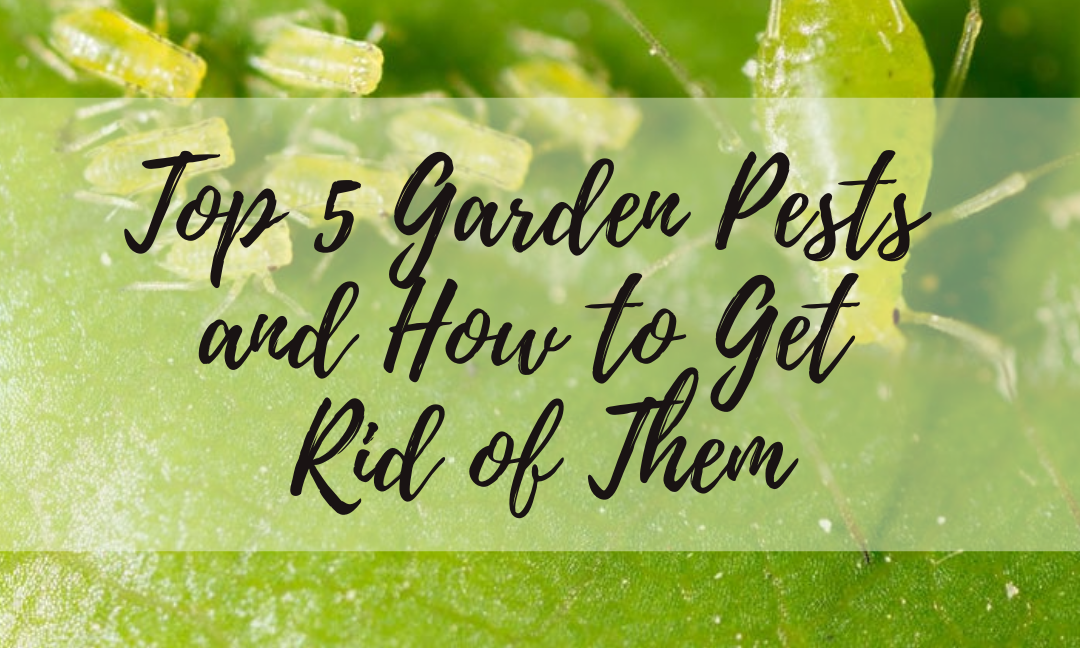Written by: Hamda Alvi
Are you having trouble getting rid of pesky garden invaders? If that’s the case, there are a lot of people who can relate. These annoying little insects like to worm their way into gardens and wreak havoc on all of your hard work, which is a source of frustration for all gardeners. But don’t worry! Here is a list of top five of these unwanted pests and how you can get rid of them.
Aphids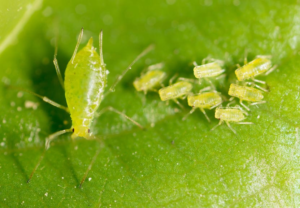
These insects feed on plant sap, causing vegetation to swell and leaves to fall off. They tend to climb on vegetables, fruits and flowers, and are keen to spread diseases. These little critters are part of the Aphidoidea family, and can vary in color. They are also commonly called greenflies or blackflies.
How do you get rid of them?
- Make sure to cover plants with floating row covers where possible.
- Use repellent sprays containing hot pepper or garlic.
- Spray plants with a strong stream of water.
- Apply horticultural oil, insecticidal soap, or neem oil to serious problems.
Cutworms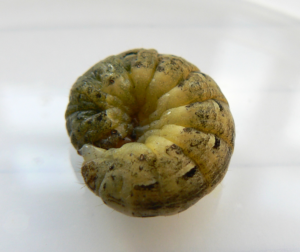
These insects like to hide under the soil during the day and slither out at night to devour your garden. They tend to attack the first part of a plant it finds, which is usually the stem of a seedling, and cuts it down. They are found on flower seedlings and vegetables and during May and June, they eat up all the small plants in their path.
How do you get rid of them?
- Postpone planting in your garden
- Cutworm collars should be used on transplants.
- Pick up any cutworms below the surface with your hands.
Mexican Bean Beetle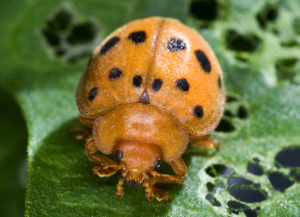
These invaders are found on snap beans, lima beans, soybeans, and cowpeas. They are yellow and brown covered in black spots and love to be in your gardens.
How do you get rid of them?
- Plant a trap crop of soybeans.
- Bush beans should be planted as soon as possible.
- Cover floating rows with floating row covers.
- Hand-pick any beetles that you find.
- Spray with neem oil or insecticidal soap
Tarnished Plant Bug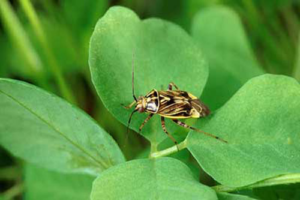
These insects are a serious problem in North America, found on vegetables, flowers and fruits. They are fast moving with brown coloured bodies and long antennae. They suck plant juice, causing them to fall apart.
How do you get rid of them?
- In spring, keep your garden weed free.
- Make sure to apply floating row covers.
- Neem oil should be sprayed on young Nymphs.
- Don’t forget to encourage native predatory insects.
Scales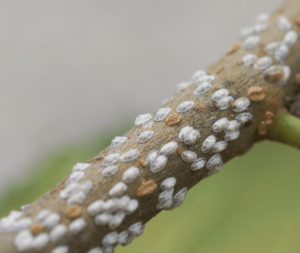
These little critters can be found on indoor plants, fruits, ornamental shrubs, and trees. They also suck on plant sap, turning them yellow and weakening the plants in your garden.
How do you get rid of them?
- Use neem oil to spray them.
- Spray dormant or summer oil sprays on the plants.
- Scrub scales gently from twigs with a brush, soap and water, then rinse thoroughly.
- Native predators should be encouraged.
- Plant sections that are infested should be trimmed out.
You’re probably running to your garden now that you’ve read about these uninvited visitors. Don’t worry! It’s not too late to defend your plants against these voracious pests! But you never know; these tiny insects are cunning and can creep into your garden undetected. Keep an eye out for potential threats and watch your garden flourish.
Picture credits:
Aphids:https://growingspaces.com/aphid-control-aphids-suck/
Cutworms:https://en.wikipedia.org/wiki/Cutworm
Mexican Bean Beetle: https://en.wikipedia.org/wiki/Mexican_bean_beetle
Tarnished Plant Bug: http://entnemdept.ufl.edu/creatures/trees/tarnished_plant_bug.htm (Photograph by Scott Bauer, USDA.)
Scales: https://coloniallawn.com/blog/identifying-tree-scale/
Hyperlinks:
https://www.oakhillhomestead.com/2016/07/predatory-bugs-natural-enemies-of.html
http://www.senior-gardening.com/how2s/cutworm_collars.html
https://www.saferbrand.com/articles/what-is-insecticidal-soap
https://www.thespruce.com/what-is-horticultural-oil-1402736
http://npic.orst.edu/factsheets/neemgen.html#whatis
https://www.goodhousekeeping.com/home/gardening/a20705991/garden-insect-pests/

